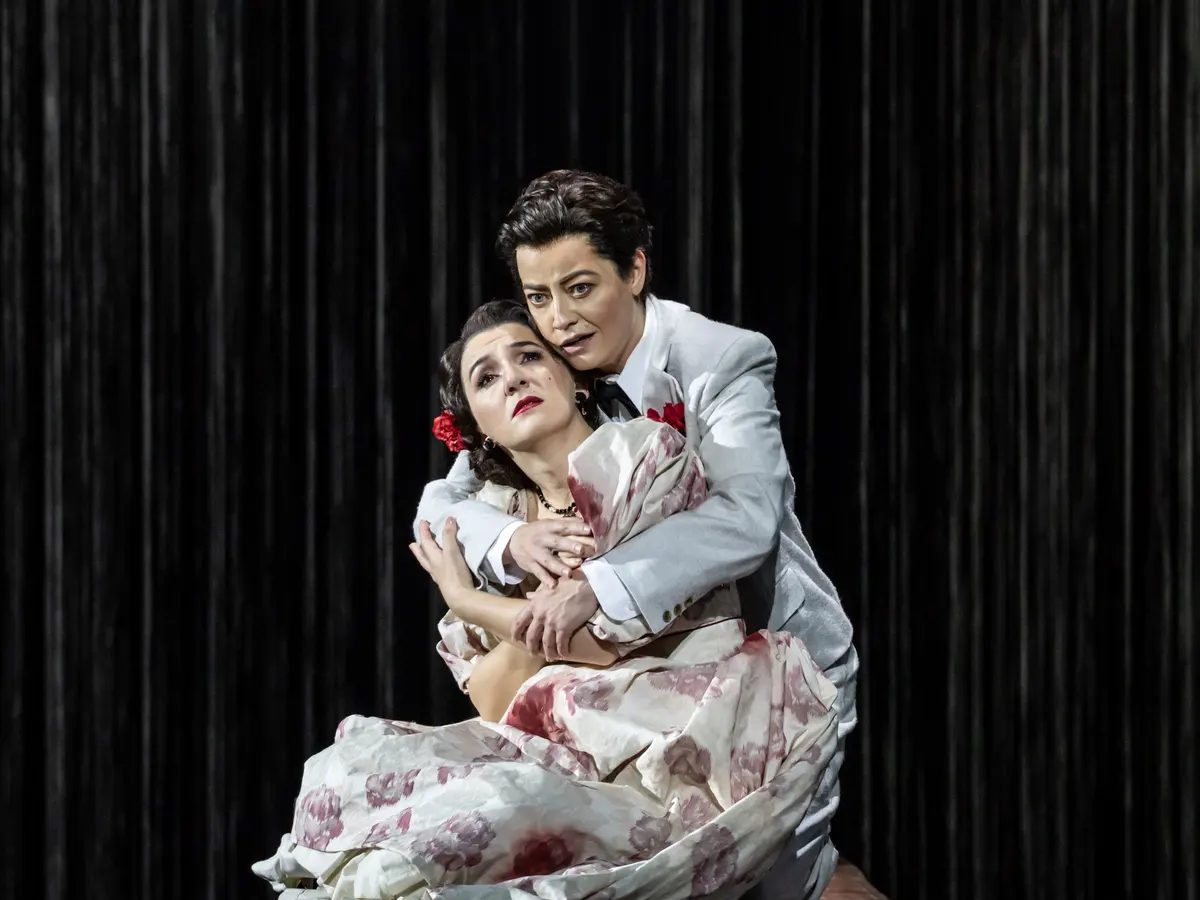Ainadamar
- Richard Evans

- Oct 11, 2023
- 2 min read
Welsh National Opera alongside Opera Ventures, Scottish Opera, Detroit Opera and the Metropolitan Opera
Osvaldo Golijov
Venue Cymru, Llandudno
October 10, 2023; 80 mins


The title alone - Ainadamar is an Arabic word meaning "fountain of tears" – indicates that this will be an intense, dramatic production, and this presentation doesn't disappoint. Ainadamar is also a name for a spring in the hills above the Andalusian city of Granada, marking the setting for Osvaldo Golijov's contemporary opera.
The story is that of the relationship between poet Federico Lorca (sung by Hanna Hipp) and his friend and collaborator Margarita Xirgu (Jacquelina Livieri). Lorca was killed by nationalists in the Spanish Civil War in 1936 and the opera is a narrative from the mind of Xirgu, lamenting the loss of Lorca and the freedoms fought for in that war. Their relationship began when Lorca cast Xirgu in his first successful play, telling the story of Mariana Pineda (executed for supporting the revolution against the Spanish regime 100 years before). Pineda was found with a flag with the slogan, Equality, Freedom and Law. Xirgu saw direct parallels between the killings of Lorca and Pineda, both having lost their lives in the pursuit of freedom.
Xirgu had fled Spain at the outbreak of the civil war and tried to persuade Lorca to follow her. He refused – he was a symbol of rebellion, openly flouting convention with his open homosexuality and raising the threat of marxism. His days were numbered. Xirgu then spent her career playing Pineda in order to immortalise the words of Lorca and to continue the fight for freedom.
The storyline and setting both need explaining to make sense of the opera. Xirgu is looking back on her career, often in conversation with a pupil, Nuria, in a series of flashbacks as she nears the end of her life. Once this is understood about Deborah Colker's production, the intensity of the work unfolds. The score, eclectic in its sources, acts as a lament and expression of grief. One wonders over what causes her most grief: the loss of Lorca, the loss of freedom under a repressive regime, or the regret that she couldn't do more to save him.
The set is clever, with a circular curtain that resembles the fountain of tears, but could also be seen as the shadowy veil clouding Xirgu’s memories. This is an allusion to the writing of Lorca, who was noted for his symbolism, futurism and surrealism. There are plenty of thought-provoking themes, not least the impact that grief had on Xirgu. Rather than stultifying her efforts, it acted as a catalyst and incentive for her to continue giving her a reason to carry on playing the part of Pineda.
The work, conducted by Matthew Kofi Waldren, is slow moving at times, but remains a gripping, intense experience that will live long in the memory. Certainly, its emphasis on the importance of fighting for freedom and equality is something we need reminding of. Frequently.
Tickets and information here










